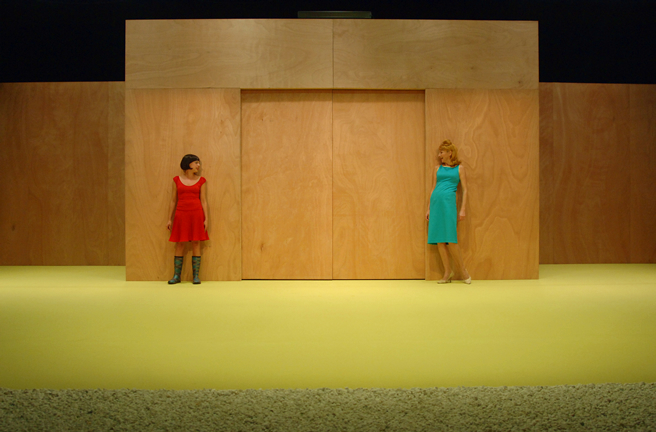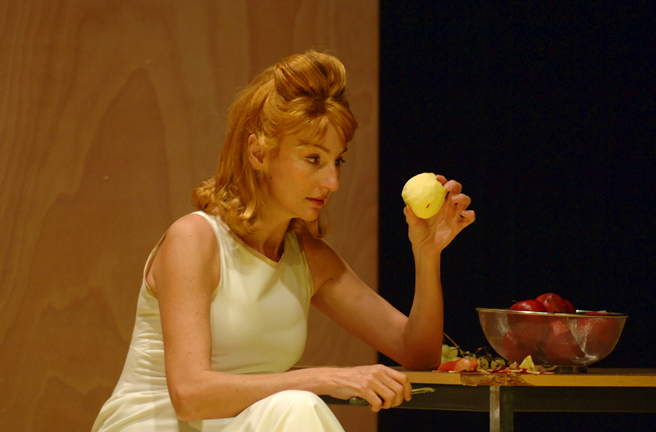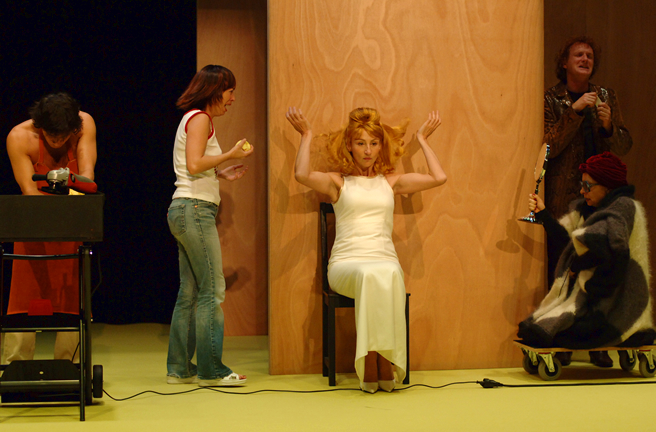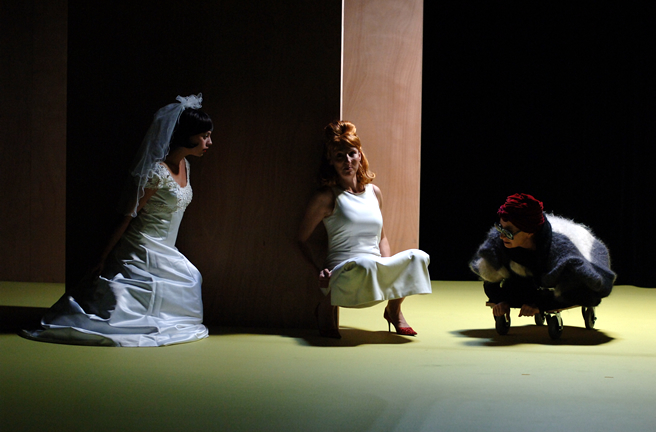What a good thing
What a good thing that you'll never know with me
Howard Barker
Shortly after Gertrude - The Cry Barker published Knowledge and a Girl. Once again it is inspired by a supposedly "well-known" work. In Gertrude, the playwright's starting point is not the work he is using as a model but from a scene that has taken place before the events the tragedy deals with; in Knowledge and a Girl (The Snow White Case), on the other hand, the drama's starting point is not something that happened before the events in the original work, but rather at its end. For in the very last lines of the original Grimm Brothers fairy tale Barker noticed a troubling detail, which he refers to in an epigraph to his work: "Snow White's evil stepmother was also invited to the feast. But a pair of iron slippers had previously been heated over a fire, slippers which were then extracted from the fire with tongs and set before her. Then she was forced to put on these red hot slippers and dance until she dropped dead." Gertrude and Knowledge and a Girl, two very similar plays, differ in the action that serves as their point of departure. The first play, starting from the scene that lays its foundation, invents another tragedy behind that of Hamlet; the second, starting from the horrible punishment which is in counterpoint to the happy end of Snow White, moves backwards to construct an entirely different tale. And this tale, this bleak version that Barker has invented, holds an astonishingly complex mirror up to its original. First, because the epicentre of the catastrophe has shifted; the story no longer belongs to Snow White, but rather to the Queen. Right from the start she imposes her royal nudity on the heart of the sexual forest, similar in her savagery to a Lady Chatterley shorn of all romanticism. The princess lurks nearby, envies her her powers of attraction, is troubled as if by a secret she had tried vainly to uncover before disappearing into the woods to sleep with seven men...As for her father, he dedicates a jealous cult to his royal spouse: the conjugal relationship (conducted, here as elsewhere, on a basis of adultery and betrayal) is a mortal "combat," in which loser takes all, and its enigmatic and bloody "beauty" is a homage each of the adversaries pays to the other...This re-writing of age-old material, this tragedy-in-the-wings of the tale, fascinated Frédéric Maragnani. For a good dozen years now he has been working in close collaboration with contemporary authors, including Huysman, Durif, Minyana or Renaude. In 2005-2006 he worked on the joint production of two plays based on the notion of the theatrical tale, staging Bluebeard (The Primal Scene) by Nicolas Fretel, and Barker's text. The restaging of Knowledge and a Girl (The Snow White Case), providing the link between the Barker "minicycle" and the project of Olivier Py, based on Grimm, comes at just the right moment.
Cast
by HOWARD BARKER
directed by FRÉDÉRIC MARAGNANI
French translation : Cécile Menon
scenograpy : Camille Duchemin
Lights : Éric Blosse
Sound : Benjamin Jaussaud
Costumes : Sophie Heurlin
With Christophe Brault, Laurent Charpentier, Marie-Armelle Deguy, Jean-Paul Dias, Isabelle Girardet, Patricia Jeanneau, Céline Milliat-Baumgartner, Émilien Tessier, Jérôme Thibault.
production
Travaux Publics
avec le soutien de l’Office artistique de la région Aquitaine
Created in November 2005, at the Théâtre de Suresnes Jean Vilar
,





